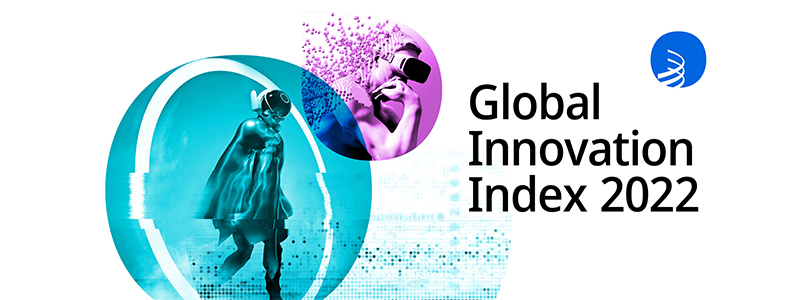Content
Global Innovation Index 2022: Germany moves up to 8th place in the ranking

World Intellectual Property Organization Study: Several German regions among the top technology clusters – DPMA President: Assessment of Germany is an encouraging sign
Press release of 29 September 2022
Munich. Improvement in the ranking of countries, top positions in terms of important individual indicators and good rankings of several German economic regions: The President of the German Patent and Trade Mark Office, Cornelia Rudloff-Schäffer, has been pleased about Germany’s performance in this year’s Global Innovation Index. “A strong and stable innovation system is one of the key factors for overcoming crises,” the DPMA President said and added: “It is therefore an encouraging sign that Germany has received such a positive assessment from the World Intellectual Property Organization, especially during these difficult times.” In the World Intellectual Property Organization’s (WIPO) Global Innovation Index (GII) 2022, Germany has moved up two places compared to the previous year, now ranking 8th.
Germany has particular strengths in, for example, patent applications, classic logistics and the size of its domestic market. According to WIPO, Germany is the world’s leader in these three indicators. In terms of companies’ investments in research and development, it takes 2nd place. It ranks 3rd both in terms of the impact of scientific publications (measured by citations) and in terms of the variety of complex export goods.
10 German technology clusters among the top 100
Germany does well not only in the ranking of countries but also in the assessment of individual economic and technology regions (science & technology clusters). Germany hosts 10 of the top 100 of these clusters worldwide, i.e. only half as many top 100 clusters as the United States but twice as many as France and Canada. The three best-ranked German clusters are Cologne (23th), Munich (24th) and Stuttgart (28th).
According to the study, Germany’s innovation system is also characterised by particular efficiency. While it only ranks 12th in terms of innovation inputs, Germany takes 7th place in terms of outputs.
However, Germany again reveals weaknesses in some GII indicators – e.g. in digitisation. As for public-sector online services and the public’s participation in corresponding electronic services, Germany lags behind. As in the previous year, it only ranks 59th and 57th in terms of the relevant indicators "Government’s online service" and "E-participation", respectively. With respect to the indicator "New businesses", i.e. the establishment of new companies, Germany only takes 73rd place, as in the GII 2021. “The digital transformation is probably the biggest challenge for all economic sectors, both private and public. If we do not make faster progress in implementing it, this will also affect our innovative capacity," DPMA President Rudloff-Schäffer said.
For the Global Innovation Index, WIPO examines the innovative capacity of 132 economies in total on the basis of about 80 indicators. As in the previous years, Switzerland takes 1st place, ahead of the United States and Sweden this year. The United Kingdom ranks 4th, ahead of the Netherlands. The following places in the ranking (from 6th place) are taken by the Republic of Korea and Singapore. Behind Germany, which ranks 8th, Finland and Denmark complete the top 10. China’s rise continues. It has again moved up one place to rank 11th now, just behind the top 10.
The German Patent and Trade Mark Office
Inventiveness and creativity need effective protection. The DPMA is the German centre of expertise for all intellectual property rights – patents, utility models, trade marks and designs. As the largest national patent office in Europe and the fifth largest national patent office in the world, our office stands for the future of Germany as a country of inventors in a globalised economy. Its staff of just under 2,800 at three locations – Munich, Jena and Berlin – provide services to inventors and companies. They implement federal innovation strategies and develop the national, European and international protection systems further.
picture: WIPO
Last updated: 2 February 2026

Not only protecting innovations
Social Media